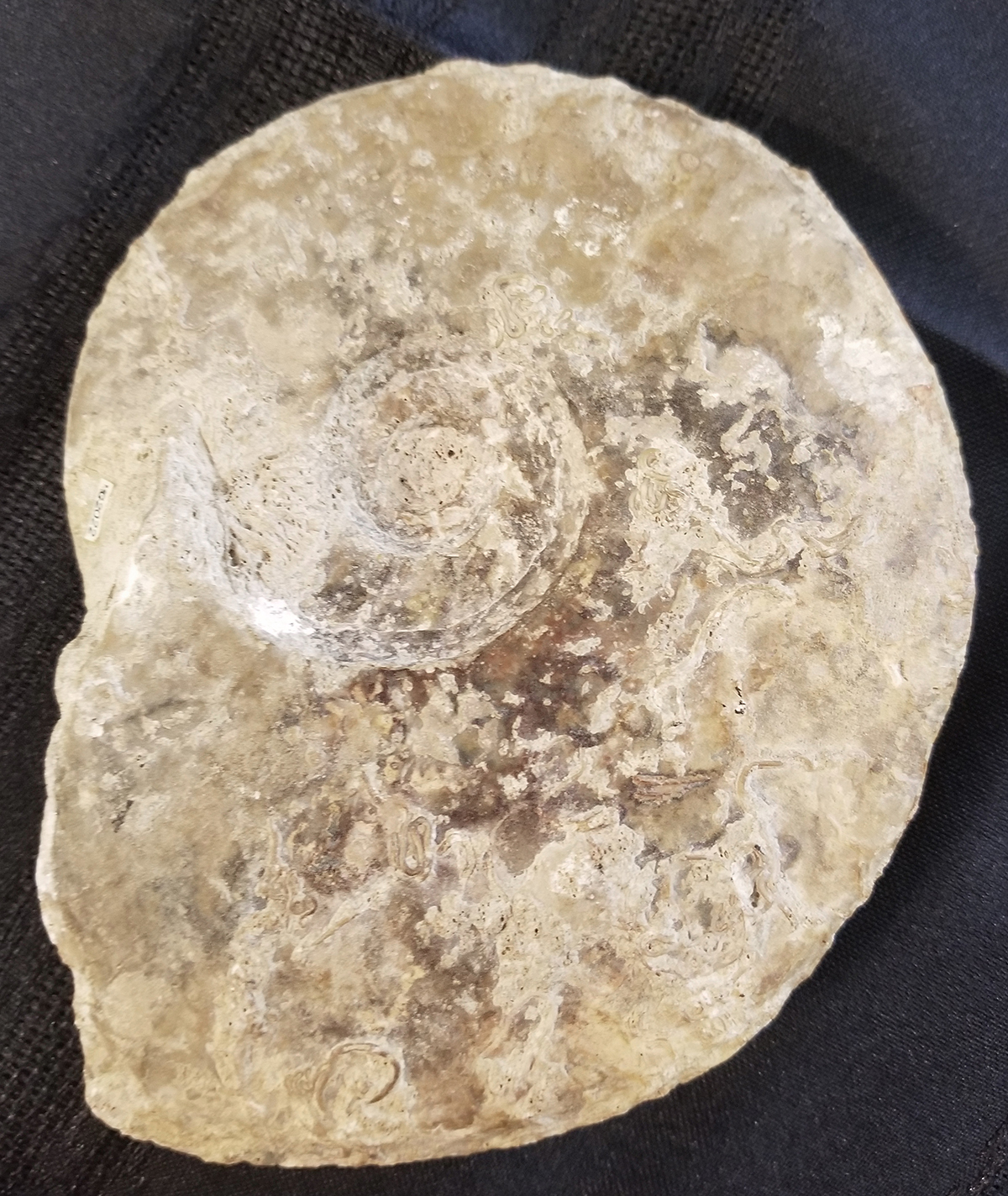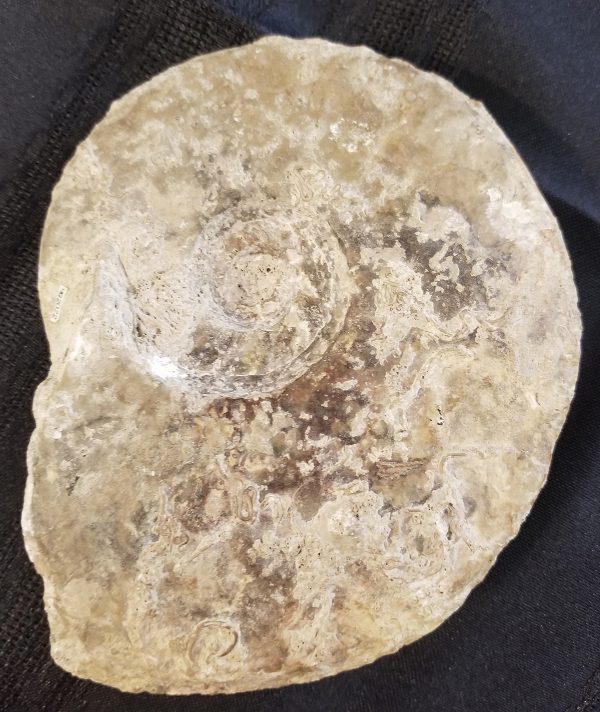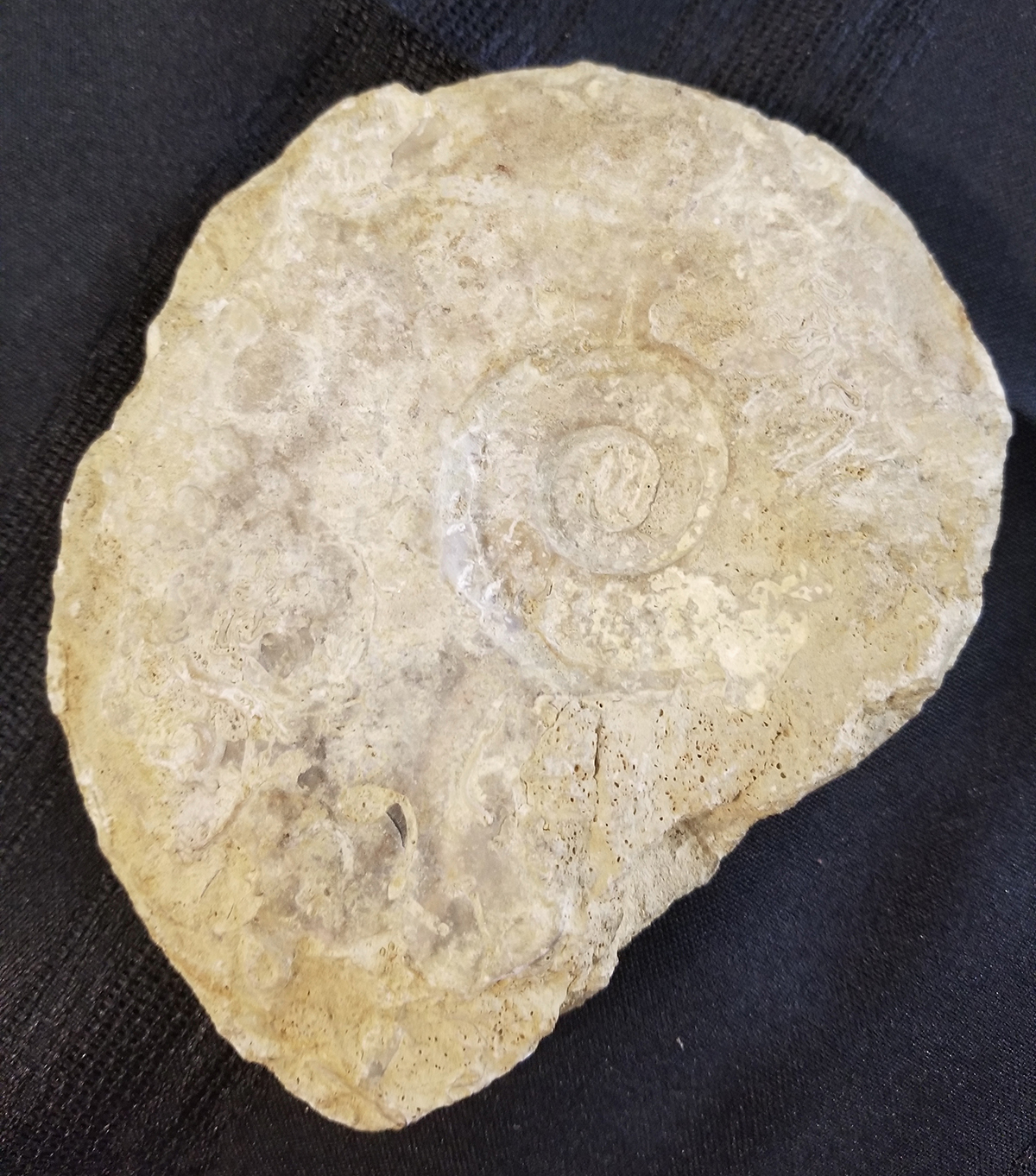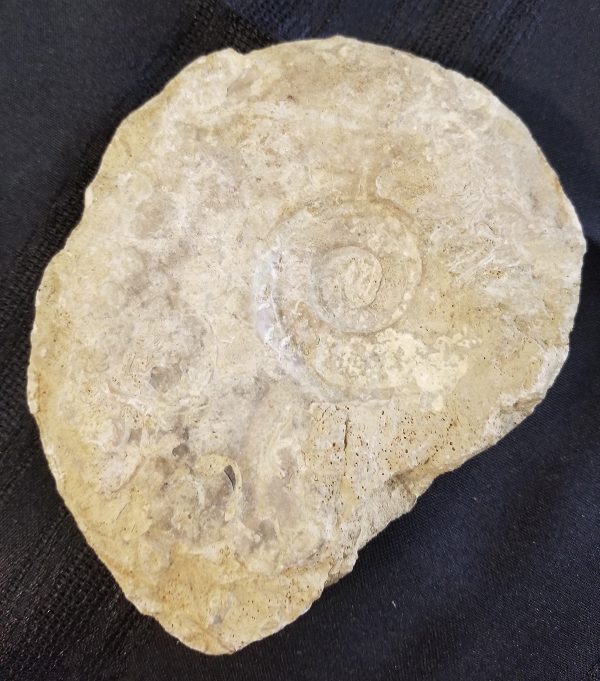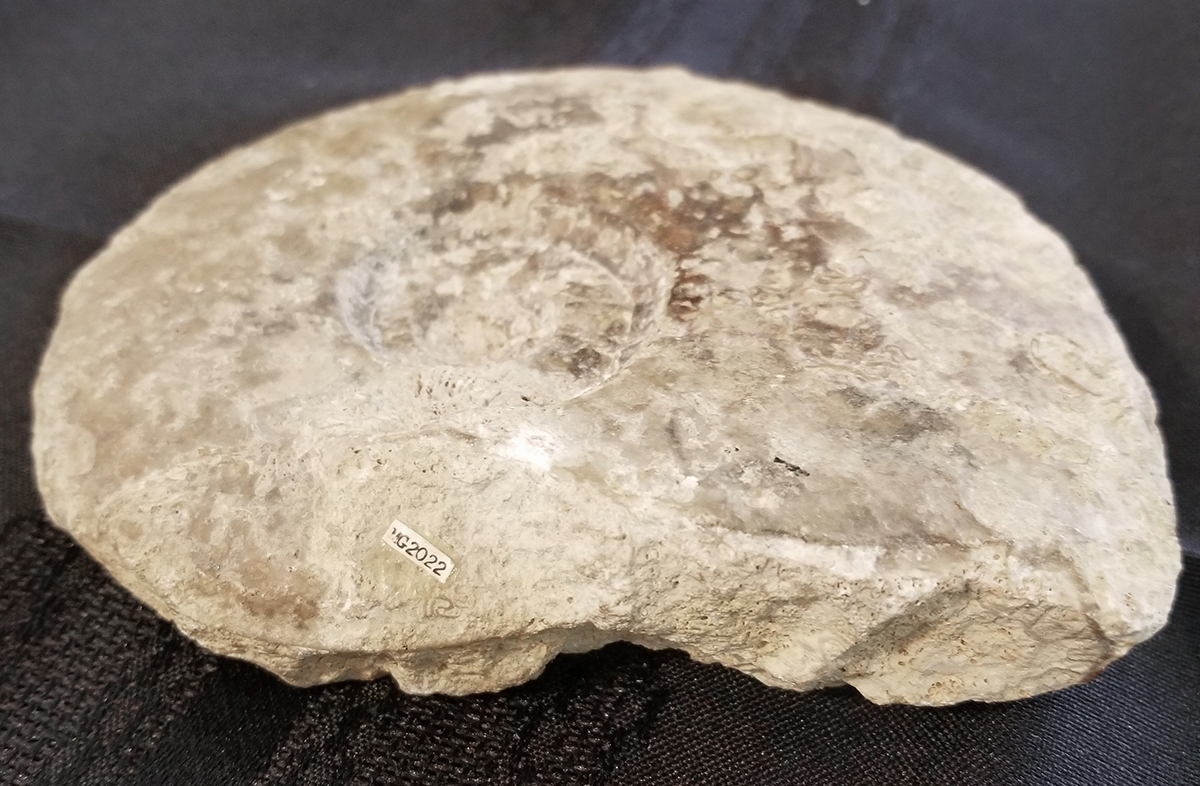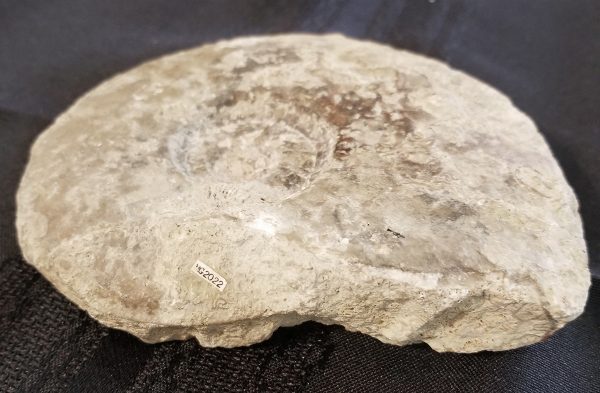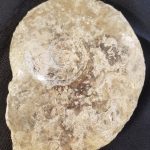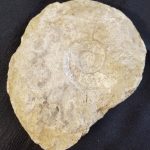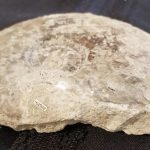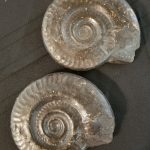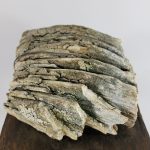Description
Large specimen at 1 x 4.5 inch diameter
Madagascar is renown for producing beautifully preserved ammonite fossils from both the Jurassic and the Cretaceous periods. The Jurassic is a geologic period and system that spanned 56 million years from the end of the Triassic Period 201.3 million years ago to the beginning of the Cretaceous Period 145 million years ago.
Ammonites are perhaps the most widely known fossil, possessing a typically ribbed spiral-form shell. These creatures lived in the seas between 240 – 65 million years ago, when they became extinct along with the dinosaurs. The name ‘ammonite’ originates from the Greek Ram-horned god called Ammon. Ammonites belong to a group of predators known as cephalopods, which includes their living relatives the octopus, squid, cuttlefish and nautilus

